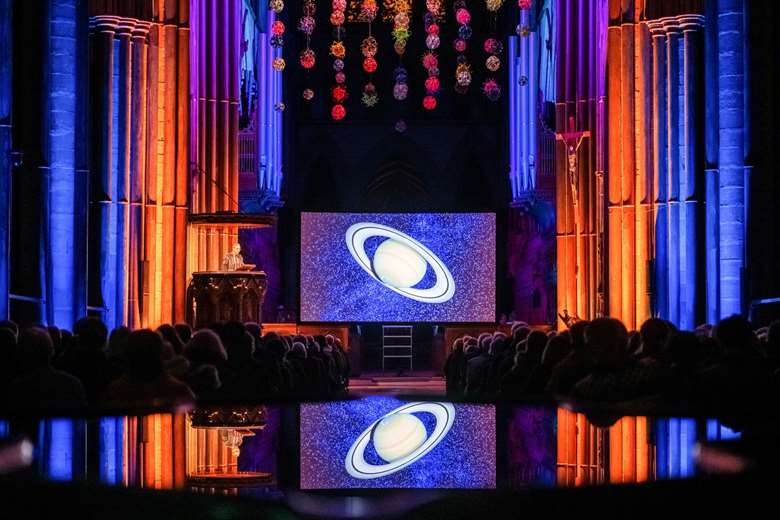Salisbury Cathedral celebrates Holst's 150th anniversary
Wednesday, December 13, 2023
‘Holst 150’ features a full-length film of The Planets performed on the Cathedral’s Father Willis organ alongside specially tailored online resources

Credit: Finnbarr Webster
The 150th anniversary of Gustav Holst is being marked at Salisbury Cathedral in January with a music and outreach project.
Centred around the Cathedral’s Father Willis organ, ‘Holst 150’ features a full-length film of Holst’s orchestral suite The Planets, performed on the organ in an arrangement made by assistant director of music John Challenger.
The film – which is to be released on the Cathedral’s own label and is expected to premiere on YouTube in autumn 2024 – will form the backbone of specially designed educational resources for young people that can be offered on- and off-site by the education team, as well as being shared by other people.
The project grew out of a series of workshops featuring the organ in 2023, Challenger explained: ‘I was keen to harness the power of Salisbury’s celebrated pipe organ, and The Planets offered a perfect opportunity to engage afresh with young people and get them thinking about Holst’s magical music and seeing our Father Willis organ in a new light.’
In February 2023 Challenger performed his arrangement of the Holst, with each movement preceded by a new poem by Martin Figura and with special lighting effects. Then the Cathedral’s education department collaborated with Figura, the music charity La Folia, and performer-composer Howard Moody, reimagining Holst’s music and holding workshops in local schools, among them Exeter House School, Salisbury’s school for children with severe and profound and multiple learning difficulties.
Katherine Dolphin, education officer at Salisbury Cathedral, explained: ‘The students were encouraged to combine scientific facts about the planets with the music, working across a range of curriculum disciplines, and Martin asked them to invent personalities for the planets too. During the workshop finale, the participating students performed their poetry to each other, each preceded by a musical introduction.’ Figura then used the pupils’ work to craft a bespoke planet-themed poem for each school.
The upcoming film – recorded by engineer, producer and editor Andrew Post, and produced by Ben Tomlin – will include footage of the specially lit empty Cathedral and a drone’s bird’s-eye perspective, as well as close-up details of the performance at the organ console. It will form part of a wider package of films and educational material designed for schoolchildren.
‘Holst himself was an early 20th-century pioneer of musical education, especially for girls,’ said Challenger, ‘believing that good music should be universally available. In our own time, music is often viewed as a frivolous luxury, with many schools sadly not being able to offer musical education. In the spirit of Holst’s own philosophy, this new film, alongside the specially tailored online resources, will be free to all, both as entertainment and education. I hope that we may, in some small way, be able to offset the general decline in children’s experiences of classical music.’
The Planets will be premiered on YouTube in autumn 2024, and hosted on YouTube for all to view, free of charge, at any time after that release. A downloadable album and physical CD of the full-quality audio (lossless and uncompressed) will also be released on the Cathedral’s own label, with proceeds from sales continuing to support the Salisbury Cathedral Choral Foundation.
Schools and clubs wishing to know more about the workshops offered by Salisbury Cathedral, or looking for resources to use in schools, should contact the education department.






